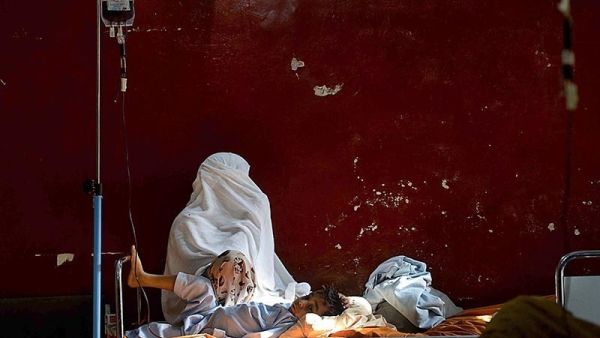Here's a disorder you've probably never heard about: thalassemia. But for Arabs it's a condition that could strike fear into the hearts of newly engaged couples.
It's a common practice in a lot of Arab countries — Jordan, Saudi Arabia — to require medical screening before getting married. Every couple who wants a marriage license has to be pre-screened for thalassemia, a genetic blood disorder that can cause bone deformities, cardiovascular illnesses and other complications.
If both partners are carriers, they're advised to find another fiance. It’s assumed they want kids. And if they don’t want kids, then there’s something altogether wrong with them and they probably shouldn’t get married anyway.
Arabic media reports earlier this week said 1,855 couples in the Saudi kingdom were medically advised against marriage in the past year. That's out of the 43,000-plus who got screened.
Couples can't get their marriage contracts signed unless they show they were pre-screened for the conditions and given permission by medical professionals. In most cases, Arab News reported, they choose not to go through with the marriage.
“The pre-marital screenings involves detecting genetic and viral diseases. If the results showed some preventions for marriage, such as diseases that might cause deformities among newborns, or handicaps or diseases, the couples are referred to the clinic for further consultations and to explain the hazards involving such marriage,” said Mohammad al-Masri, laboratory and blood bank specialist in Jeddah.
According to the Saudi Ministry of Health, high demand for pre-screening centers call for two more facilities north and east of Jeddah. Al-Masri said the two existing centers in the city currently process about 250 samples for the pre-screens every day.
By Hayat Norimine







